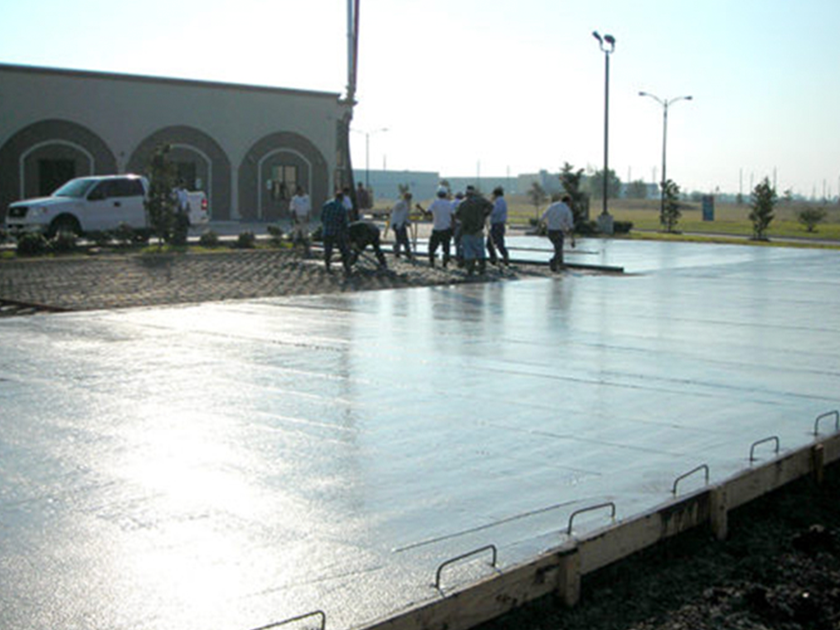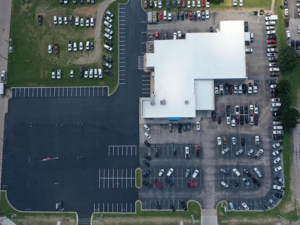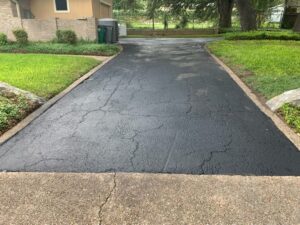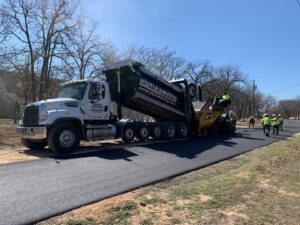Concrete parking lots have always been a popular choice in Central Texas. With relatively mild winters, concrete is not subjected to the extreme freeze/thaw cycles that are present in most of the northern states; since concrete is not extremely flexible, it can be damaged by severe winter weather. During hot Texas summers, concrete tends to reflect more heat than darker pavements, which helps to reduce the “heat island” effect found in urban areas.
Concrete parking lots can be an aesthetically pleasing, long-lasting choice for all types of commercial businesses. Shopping malls, convenience stores, industrial facilities, apartment complexes, convention centers and restaurants are just a few of the businesses that can benefit from a concrete parking lot. However, constructing and maintaining a concrete parking lot requires the services of an experienced paving professional.
How Concrete Parking Lots Are Constructed
A concrete parking lot consists of three important layers. The first is the subgrade, which is the soil that underlies the parking lot. The second layer is the base that helps distribute the weight of traffic. The final layer is the concrete. Each layer is carefully designed so that all layers work together to provide the stability and support required to distribute loads evenly.
The type of soil present in the subgrade must be evaluated. Different types of soil can pose different issues that must be addressed. For example, fine-grained sand tends to have less load-bearing capacity, while soil with a high clay content can be prone to excessive shrinking and swelling as the moisture content changes.
After the subgrade is leveled and compacted, the base can be installed. The thickness of the base depends in large part on the type of soil present in the subgrade. If the subgrade has a low support value, the base will need to be thicker to ensure that the completed pavement will perform as expected.
Once the base is prepared, the contractor can install the concrete. Forms will be constructed, and in most cases, reinforcing steel bars will be placed in the forms. The concrete is then poured and smoothed.
What Contractors Need to Know
When planning a new concrete parking lot, contractors will need to collect information on how the parking lot will be used. Will traffic include heavy trucks or will it be limited to passenger cars? How many of each type of vehicle are expected to use the parking lot each day? Will traffic be segregated so that heavy trucks cannot access the area for passenger vehicles? The answers to these questions can help the contractor determine how thick the concrete needs to be.
Other questions that the contractor may ask involve the features that the owner wants. For example, a large parking lot may have islands for landscaping or lighting. Perhaps the owner would like curbs installed at the same time as the pavement. The more that the contractor knows before drawing up the plans for the parking lot, the less likely it is that delays or cost overruns will occur due to plan changes or the need to retrofit features.
Maintaining Concrete Parking Lots
Concrete parking lots are low-maintenance pavements, but a certain amount of routine maintenance can help ensure that they offer the best return on investment. If cracks develop, a professional should be called to seal them; sealing will help prevent potholes, water penetration and additional damage. Surface sealers are available for concrete pavement, but you should ask a reputable contractor about the advisability of concrete sealer for your specific parking lot.
Choose the Right Contractor
At Alpha Paving, we can help you with your concrete parking lot. We are a full-service, award-winning paving contractor serving clients throughout Central Texas. Our services include concrete paving and repair, parking lot striping, pavement markings, parking lot signs and car stops. We also offer a full range of asphalt services. Our crews deliver exceptional workmanship and outstanding customer service. If you would like to receive a free quote, you can call (512) 677-9001 or complete the online form.

